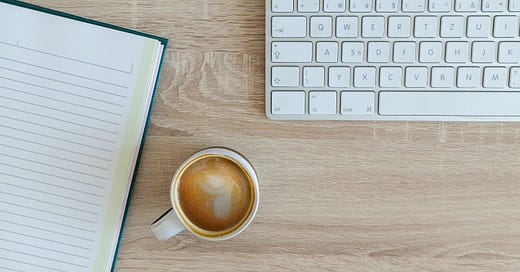How to beat procrastination pt.8 : Energy management
Managing your energy levels is crucial to sustained productivity
It’s 2 pm, you’ve had your early afternoon cup of joe, but you suddenly feel sluggish, you could take a nap. Nothing gets done.
Can you relate? Most of us suffer from the afternoon slump. Some even feel it around 10 am. Your productivity suffers from these drops in your energy levels.
There are a few things you can do to prevent those crashes and sustain your energy and productivity throughout the day.
A proper night’s sleep
You’ve heard this advice several times, it’s everywhere.
It’s cuz it’s true! Without sufficient sleep, it is obvious that you’ll feel drained, sluggish and even exhausted. And it directly affects your productivity.
Aim for 7-9 hours of adequate sleep every night to see your energy levels at their optimal states. That may mean going to bed 30 minutes earlier, setting a bedtime routine, and turning off your phone an hour before bed so that you can decompress to sleep better.
I’ve become quite the sleep zealot after a health scare in 2010. I plan on sharing a detailed 10-step plan for optimal sleep in an upcoming edition of Productive Happiness, stay tuned!
Figure out your chronotype
Your chronotype is what determines your peak energy and focus levels.
Are you a night owl? Do you tend to do your best work in the early mornings? When are you usually the most productive?
I suggest you observe your energy levels over the course of a week and make a note of your daily slumps. Also, notice when you feel on top of your game and most mentally alert.
After observing your ebbs and flows, plan your most important tasks during your peaks and try to rest and recharge during your slumps. Even a 10-minute break can do wonders!
Nutrition is key
Have you ever noticed that after a big plate of pasta, you feel like you could nap?
If you have a big project you need to work on, try a salad for lunch. Something light and easy to digest. Try to lay off bread, a big sub sandwich for example might induce the afternoon food coma.
A lighter breakfast, focusing on protein and fresh fruits can help with the 10 am doze.
Caffeine is not your friend
Yes, caffeine offers a welcome boost of energy in the early mornings.
But then after comes the coffee crash. When the effects of your morning cup wear off, you will feel fatigued, or even jittery, unable to focus.
If you absolutely need your morning coffee, aim to keep your daily dose within one or two cups. (I admit that I’ll often go for a third after lunch 🤫)
Manage your to-do list by energy levels
Most task managers will allow you to tag your list.
You can tag your to-dos according to how much energy they require. I have a “high energy” and “low energy” tag in Todoist. When choosing the next thing to focus on, I can filter my list according to how I feel.
I tend to do my best work between 9 and 11 am, so I plan my biggest projects during that time of day.
What is your optimal time for work? Can you identify one or two strategies listed above and try them this week?




I've always needed my sleep but never more so than now that I'm going through menopause. I'm willing to sacrifice a lot (coffee, wine etc) in order make sure that I have the best possible sleep that I can. I simply can't function without it.